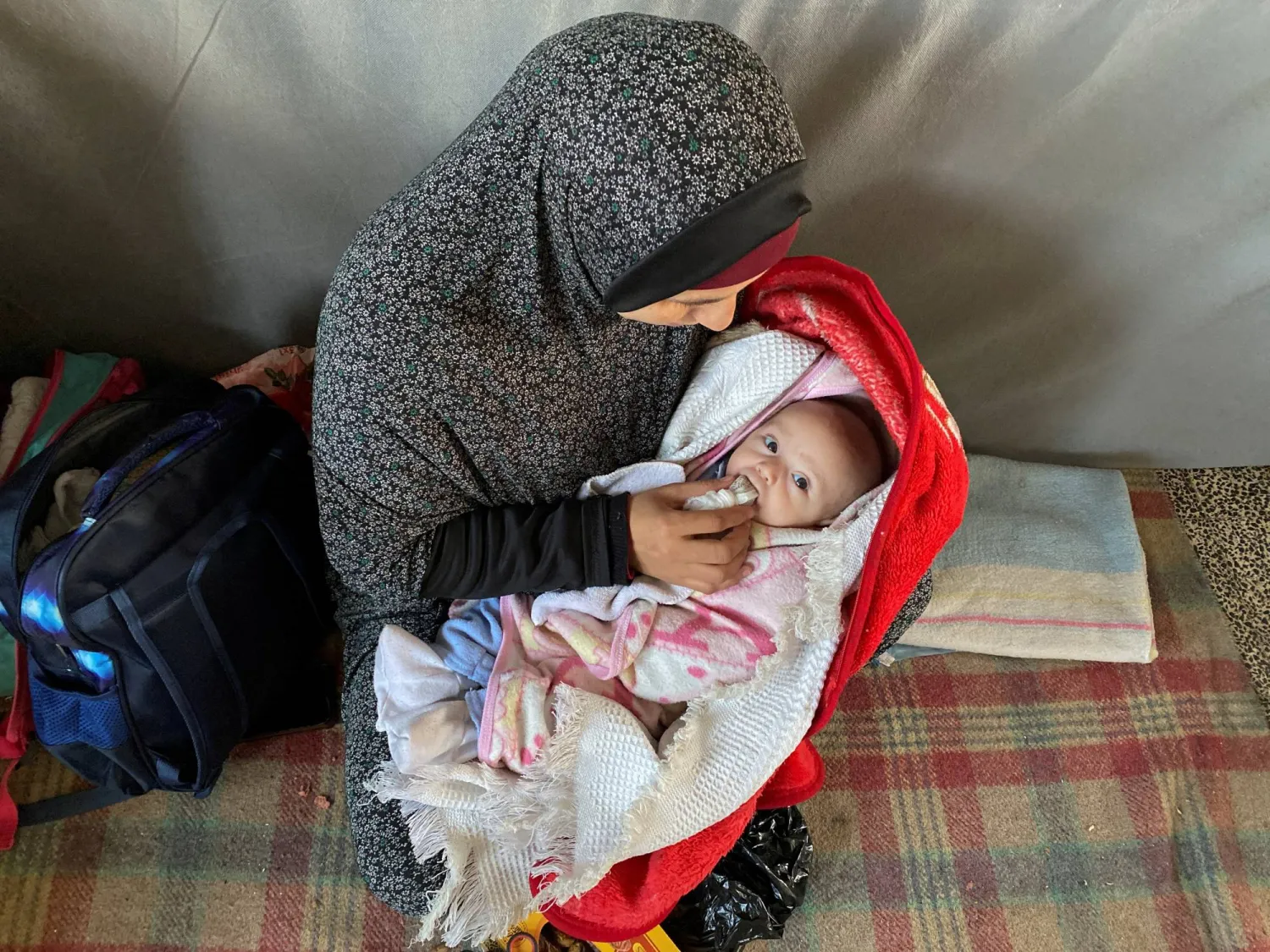After surviving on bitter loaves made from animal feed instead of proper flour, three young brothers who fled their home in Gaza City for a tent further south were tucking into a tub of halawa, a sweet crumbly paste.
Seraj Shehada, 8, and his brothers Ismail, 9, and Saad, 11, said they had run away in secret to take refuge with their aunt in her tent in Deir al-Balah, central Gaza, because there was nothing to eat in Gaza City.
"When we were in Gaza City, we used to eat nothing. We would eat every two days," said Seraj Shehada, speaking as the three boys ate the halawa straight out of the tub, with a spoon.
"We would eat bird and donkey food, just anything," he said, referring to loaves made from grains and seeds meant for animal consumption. "Day after day, not this food."
Food shortages have been a problem across the Palestinian enclave since the Oct. 7 start of the war between Israel and Hamas, but are particularly acute in northern Gaza, where aid deliveries have been rarer for longer.
Some of the few aid trucks to reach the north have been mobbed by desperate, hungry crowds, while aid workers have reported seeing people thin and visibly starving with sunken eyes.
In central Gaza, the situation is marginally better, but still far from easy, Reuters reported.
At Al-Nuseirat refugee camp, just north of Deir al-Balah, Warda Mattar, a displaced mother sheltering in a school with her two-month-old baby, was giving him a date wrapped in gauze to suck on, for lack of any milk.
"My son is supposed to have milk as a newborn, be it natural milk or formula milk, but I wasn't able to get him milk, because there is no milk in Gaza," said Mattar.
"I resorted to dates to keep my son quiet," she said.
'ONE SMALL LOAF EVERY TWO DAYS'
In the tent in Deir al-Balah, the three brothers said they had lost their mother, another brother and several aunts in the war. They were left with their father and grandmother, and almost nothing to eat apart from loaves made from animal feed, said the eldest brother, Saad Shehada.
"It was bitter. We didn't want to eat it. We were forced to eat it, one small loaf every two days," he said, adding that they drank salty water and got sick, and there was no way to wash themselves or their clothes.
"We secretly came to Deir al-Balah. We did not tell our father," he said.
The boys' aunt, Eman Shehada, was caring for them as best she could. Heavily pregnant, she said she had lost her husband in the war and was left alone with her daughter, a toddler.
"I am not getting the nutrition needed, so I feel tired and dizzy," she said.
She cannot afford even to buy a kilo of potatoes.
"I don't know how to manage our affairs with these three kids, my daughter, and I am pregnant, I can give birth at any moment."
Bird-feed Loaf and a Date Wrapped in Gauze: What Children Eat in Gaza

Palestinian woman Warda Mattar feeds her newborn dates, instead of milk, amidst food scarcity and lack of milk, at a school where they shelter in Nuseirat in the central Gaza Strip February 25, 2024. REUTERS/Doaa Ruqqa

Bird-feed Loaf and a Date Wrapped in Gauze: What Children Eat in Gaza

Palestinian woman Warda Mattar feeds her newborn dates, instead of milk, amidst food scarcity and lack of milk, at a school where they shelter in Nuseirat in the central Gaza Strip February 25, 2024. REUTERS/Doaa Ruqqa
لم تشترك بعد
انشئ حساباً خاصاً بك لتحصل على أخبار مخصصة لك ولتتمتع بخاصية حفظ المقالات وتتلقى نشراتنا البريدية المتنوعة







